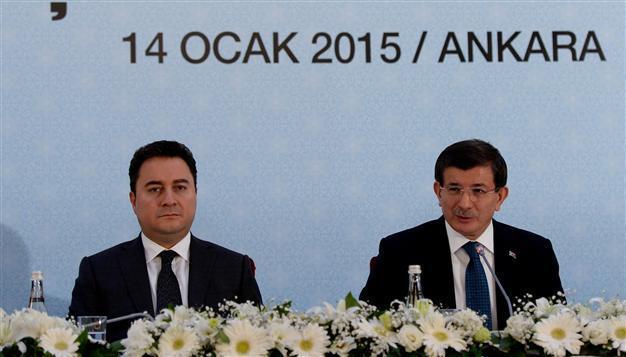Turkish government announces new codes for 'transparency'
ANKARA

AA Photo
The Turkish government has launched measures to bring "transparency" to public spending, with provisions aimed at transparency and accountability in funding for political parties and election campaigns.Prime Minister Ahmet Davutoğlu announced the “Program for Transparency in Public Administration” at a press conference on Jan. 14, accompanied by members of his cabinet.
Citing the "progress Turkey has made in democratization and human rights and freedoms" since the ruling Justice and Development Party (AKP) came to power in 2002, Davutoğlu recalled the Right to Information Law enacted in 2003.
“A lot of information remained behind closed doors in the 1990s, in ‘Old Turkey.' A lot of information was hidden after being labeled ‘state secrets.’ That culture, which destroyed transparency, has been buried by AK Parti rulings,” Davutoğlu said.
The AKP has been in power since 2002, and the next parliamentary election scheduled to take place in June will be the AKP’s first under Davutoğlu’s leadership.
“Asset declaration will become compulsory for deputy parliamentary group chairs, executives at the headquarters of political parties, provincial and district-level political party executives and executives of radio and television channels which broadcast to a national, regional or local area,” Davutoğlu announced.
He added that the president and the members of the top courts, as well as the heads of chambers of these courts, will also be accountable for asset declaration, which they will file to the Parliament Speaker’s Office.
Meanwhile, the renewal period for asset declaration will be decreased from five to two years.
“Some limits may also be set for … cash aid to candidates and political parties. The amount of aid to political parties will be announced in the electronic environment. Cash aid to candidates running for parliament and municipalities will be put into election accounts opened in their names and will be extremely transparent," he said.
According to the new measures, “supervisors of public servants who whistle blow [about irregularities or corruption], who are also involved with subjects of notice, will be prevented from arranging qualification reports or performance assessments about those public servants.”
“It will be possible to reward those public servants, unless the notices are groundless. But if unfair incrimination and slander is designated, then serious penalties will be imposed upon these persons,” the prime minister said.
Major concerns remained relating to transparency and accountability in controlling funding for political parties and election campaigns, the European Commission stated in its annual progress report released in October 2014 on Turkey, a candidate for full membership for the EU.
The EU underlined the need for reforms that include further improvements to administrative capacity, enhanced transparency of state aid, and an open, fair and competitive public procurement system.
The EU Progress Report also reviewed the presidential election in August 2014 in which then-Prime Minister Recep Tayyip Erdoğan was elected by a popular vote.
The report took note of a need for improvements in fields such as campaign finance, comprehensive reporting and sanctions, for the sake of transparency and accountability.
















